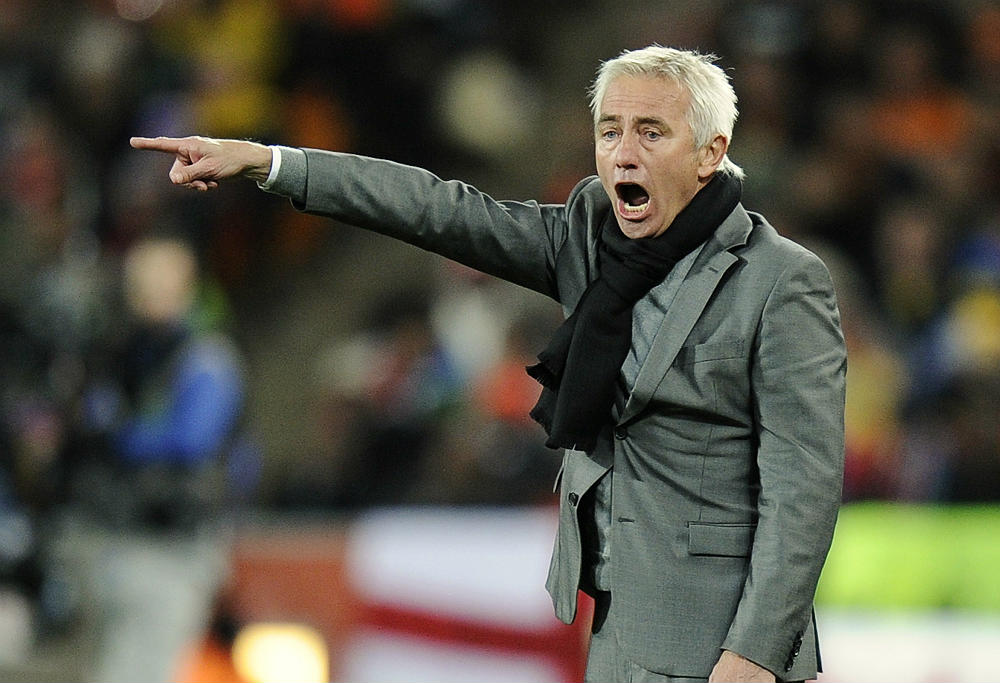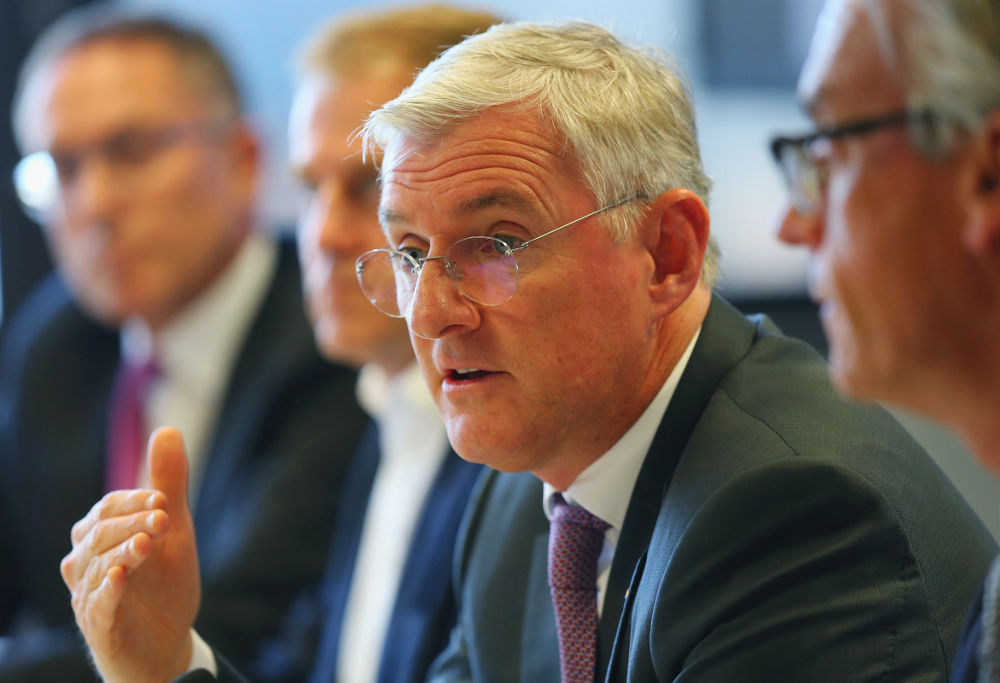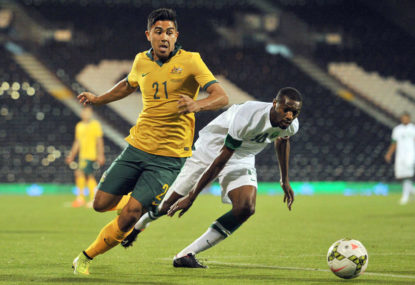When it comes to sport, in general we as Australians have a very high opinion on ourselves, and for the majority of sports that we play, we are strong competitors in comparison to the rest of the globe most noticeably in cricket and rugby.
Our other national teams, while not exactly the best in the world, are still recognised as a worthy foe against other countries. There is a sense of arrogance in Australian sport, in we believe we are the best because we have the facts to back it up.
That’s true in all sports except football.
Before I get attacked in the comments for berating the standard of the Australian national team let me state that the growth in Australian football over the past few decades has been phenomenal.
We are at a much better state than we were. We have qualified for four straight world cups. We have won the Asian cup. The Western Sydney Wanders have won the Asian Champions League.
But we are absolutely kidding ourselves if we think that the Socceroos, with these players, with such little preparation with new manager Bert Van Marwjik, with such turbulent times at FFA headquarters will be able to get out of the group stage of the FIFA World Cup in June.
Despite this, there is still arrogance by die hard football fans in this country. I use the term arrogance rather than optimism because so often I have heard us dismiss the quality of our opponents in our group (except for France of course).
I recently had this debate with a few friends of mine. Most of them were not what I would describe as football fans but enjoyed the celebrations of the World Cup. But they dismissed Peru and Denmark as relatively weak sides.
No side that makes it to the World Cup can be dismissed as a weak side. They got there because of merit and that they are a part of the best teams in their respective confederations. The arrogance I speak of can be seen with a recent comment I spotted on the Socceroos Facebook page.
“We should smash Denmark easily! Who have they got beside Christian Eriksen? And Peru? Who cares about them! They only just beat New Zealand!” (sic)
This arrogance is also seen by a certain European national team, England, the only difference is that the English are a bit more vocal than ourselves.
If you have not read Soccernomics by Simon Kuper and Stefan Szymanski I’d strongly encourage you to do so. In this book, they summarise the cycle that England go through in every major tournament, despite this being written in 2010 the cycle can be applied eight years later in Russia.

(AP Photo/Peter Dejong)
It consists of the following:
1- Unrealistic expectations will form in the English media
Until recently, England had a count down at their national team’s training base at St George’s Park for days until the semi final of Russia 2018. Many English football fans believe it is their ‘God- given right’ to win the world cup despite the quality of their team being average overall
2- England will meet a side that has superior quality than themselves
In South Africa this was Germany. In Brazil, this was Italy. In Russia this is going to be Belgium. I believe that Belgium are going to defeat England but the English media is not going to refer to the quality of players.
They are going to refer to some other scandal, possibly the recent England–Russia diplomatic crisis and that is going to cause referees to be swayed against England or something else as ridiculous. Anything but the fact that the team is not as good
3- England will get knocked out of the world cup, far from whatever lofty ambition was established by the media
You can see this from England’s recent tournament history. In Brazil they went out at the group stage, in Euro 2016 they went out against Iceland in the round of 16, no matter where England finish, it will be well below what they wanted.
4- A scapegoat is found for the results
Again in Euro 2016 it was Joe Hart and Roy Hodgson. The English media will find some player or manager to blame, still refuting the fact that their side is simply not as good as who they were up against. Casualties will come from this, people will lose their job and players will lose their place in the starting line up
5- England go into the next tournament with unrealistic ambitions and the cycle repeats
So why do I mention this? Because the Socceroos do the exact same thing. With the exception of Brazil were anyone could see that our group was far too difficult. In South Africa we blamed the fact that Tim Cahill got red carded against Germany (similar to how Beckham was sent of in 1998 against Argentina).
It was because of that our goals were not reached. The referee was what we blamed, later we blamed Cahill and then finally we sacked Pim Verbeek. Then went to the Asian Cup expecting to win the thing.
I have no doubt that we are going to do the exact same thing again in Russia where things do not go our way. We will not progress from the group stage, we will blame van Marwjik because of it, ignoring the fact that our squad has not had any serious development since 2006. Australian football is stagnating and we need to reassess our ambition.

(AP Photo/Martin Meissner)
England still refuses to reases their ambitions and are ridiculed for their arrogance and sense of entitlement. Similarly we seem to be entitled when it comes to the Socceroos. We expect to just walk in to Russia and crush Denmark and Peru.
We saw this in World Cup qualifying against Thailand, Saudi Arabia, and even a few days ago against Norway.
There is nothing wrong with having ambitious goals but they need to make some sense. In business, this is referred to as the SMART principle of goals. It mentions that all goals must be ‘Specific, Measureable, Attainable, Realistic and Time Bound’.
If we look at the FFA’s ‘Whole of Football Plan’ there is a lot of unrealistic ambitions at least within the time frame that they have specified. While they have given themselves at least 20 years to make “football Australia’s number one sport” there is a lot that needs to be achieved before they can do that.
How about start with the addition of promotion and relegation?
How about expansion that should have been started at least two years ago?
How about creating a more democratic congress?
I will give the FFA some credit for creating these goals, they are specific at least when you read the entire document and they are measurable. But at this stage, when so much of the focus on football is what is happening of the pitch they are no longer (at least right now) realistic.

(Photo by Don Arnold/Getty Images)
As I have said there is nothing wrong with ambition, but blinded ambition where nothing is being done (as seen through the FFA’s current failure of a plan,) just causes us to be stuck in a loop were the fans will set their own unrealistic expectations.
I want to see all the FFA’s goals as outlined in the plan come to fruition. Nothing would bring me greater happiness as a football fan. However, when there has been no progress on these goals in four years, we need to come up with a new plan. A set of smaller plans that our leadership is going to focus on implementing.
I do not want to come across on this article as someone who is being negative just for the sake of being negative. It is only once we are realistic with ourselves can we make more effective goals to eventually lead up to the ambitious targets that we set ourselves.
































































































